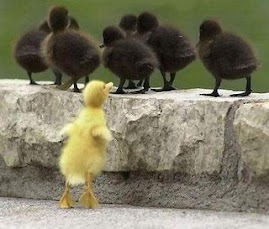I resolve to take whatever approaches are necessary to generate the results we all want to achieve in our pursuit of urban revitalization.
I believe in the go hard or go home strategy. I don't like to take on small projects. :D
There are too many critical issues that must be addressed this decade to leave to the same old strategies. Detroit is changing and remaking itself before our very eyes. People are wising up to the devastation in our food supply from things like modified wheat and high fructose corn syrup. School systems are realizing that they must educate children and that the issues of the adults in the system are irrelevant if kids are not learning! Cities need to get on the ball and realize that they can't keep doing things the same way - because it is not working!
I read an article about Baton Rouge, LA and how they lost a homegrown tech company to North Carolina. Ouch. Seems that the school system was not producing an educated workforce that could take on the jobs at the company and LSU, the state university in this city, was farting around with some BS bureaucracy that the company did not have time to wait on. Gee, this sounds like Kansas City or Camden, or other cities that squander the resources they have and are inept at innovation or even supplying the basic services and conditions for which they could and should be responsible.
- If a school district is not educating kids, it is not working.
- If a city is not working with that school district to make sure kids are educated, then the city is not working.
- If a city is more successful at incarcerating people than educating them, it is not working.
- If it is easier to get a free meal than to get a job, then the city is not working (and neither are the citizens).
- If people are more likely to buy junk food, processed food, and fast food than high quality fresh food, then the city is not working.
So what I hope to explore in this blog is how to keep this resolution. It cannot be done without taking into account the social polarization, racial divides, economic inequities, social injustices, and political demagoguery that we have all come to accept as the status quo. To suggest that "that's just the way it is" won't cut it anymore.
To quote a movie from my youth, "I'm mad as hell and I'm not going to take it anymore."
But anger, dissatisfaction, and resistance will only take us so far. We need to have bold expectations that common results will actually occur. Kids will be educated and able to take on the world's challenges or at least be able to read at grade level upon graduation. Urban farming and green technology will become the mainstay of urban economies - or at least be present so that people will recognize that pollution and processed food are not the only option. Urban economies, development, and infrastructure will be sustainable and support the population - there is no compromise on this.
I know this is possible. There are brilliant ideas and movements available to achieve these results. The supply is there - we just have to demand it, purchase it, and implement it. Of course that is the tricky part - that requires serious conversation and building expectations.
Transformation is not easy or free. What are you willing to give up to make it happen?
Let's see how far we can take this.
PS: I get my attitude from the self discovery I have done through Landmark Education (www.landmarkeducation.com). For those in the Philadelphia area, we are having a discovery of self - create what is possible session on Jan. 7 at 7pm in downtown Philly. It's free and it will be an incredible 3 hours to create what is possible in the new year. You also can sign up for the Landmark Forum, the doorway to doing whatever it is you want to do in your life. Contact me for details!









No comments:
Post a Comment